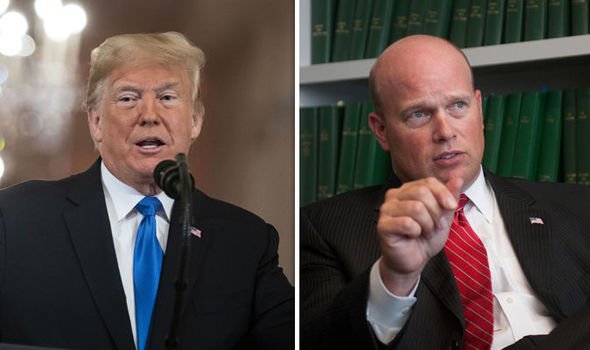(THREAD) The main problem with that @DanDrezner piece in the Post is that it's an international politics prof writing about the field in which I'm a professor—communications. No one in communications would *ever* compare the blogosphere to either Twitter or Substack. Here's why.
I still find that problematic in many ways.
More from Seth Abramson
Looking forward to watching @SethAbramson\u2019s world collapse around him when he realizes he has been absolutely wrong about his apparent \u201cinsight\u201d since day 1. I repeat, trust the insiders, not the nuts.
— George Papadopoulos (@GeorgePapa19) October 8, 2018
2/ As GP rails against Mueller to help sell movie rights to his story (or whatever), here's what his attorneys actually said in court: "Our firm would in a second stand up if we saw prosecutorial or governmental misconduct. We have seen no such thing." But they didn't stop there.
3/ George's attorneys added, "We have seen no entrapment. We have seen no set-up by U.S. intelligence people. Everything we saw, they’ve been on the square." So apparently on the same day my world "collapses," George's lawyers will *also* experience a massive temporal distortion.

1/ If you haven't yet seen my analysis of Trump's January 6 "incitement to insurrection" speech, you can find it at the link below. This thread will look at four shorter—but deeply consequential—speeches just before Trump's, all by Trump allies or family.
(THREAD) Media has yet to do a deep dive on precisely what Trump *said* in his January 6 speech in DC\u2014a speech now called an "incitement to insurrection," and the basis for an article of impeachment coming Monday. This thread unpacks the speech. I hope you'll read on and RETWEET. pic.twitter.com/ba6eaNScNW
— Seth Abramson (@SethAbramson) January 9, 2021
2/ DONALD TRUMP JR.
Trump Jr.'s speech on January 6—which ended less than an hour before his father incited an insurrection—is one of the most inscrutable of the day, because its beginning includes some promisingly responsible rhetoric. Then it descends into madness and chaos.
3/ "I'm looking at the crowd here, and you did it all [congregate here] without burning down buildings! You did it without ripping down churches! Without looting! I didn't know that that was possible!" Within 2 hours of his speech, Don Jr.'s audience would be looting the Capitol.
4/ So obviously Don Jr.'s opening is ironic to a historic degree, but this isn't the first time we've heard this rhetoric from him. He habitually ignores right-wing violence because he knows that his chief rhetorical canard—which marries progressivism and violences—gets applause.
This feels to me like another sign that the world is off its hinges, so I sure hope we are going to find out that—despite there being no evidence of it—this was staged.
MAYHEM BETWEEN CHRIS ROCK AND WILL SMITH AT THE #Oscars pic.twitter.com/265hGbsEDg
— Barstool Sports (@barstoolsports) March 28, 2022
(PS) Either that was the most straight-faced comic bit in major-television history—in fact *so* straight-faced it was a total failure—or mega-Hollywood star Will Smith just straight-up *assaulted* a famous comic during one of the most widely watched annual telecasts in the world.
(PS2) I’m agreeing with those of you saying it wasn’t a bit, I just wanted to leave room because... well, because I just can’t believe what happened. I do know that Jada’s hair is a sensitive subject for her, but between that and a violent assault is a hell of a lot of territory.
(VIDEO) Here is the uncensored version.
Not a bit—an assault.
(PS3) This affected me. I just said to my wife, “If Will Smith can’t keep it together at the *Oscars*, how the hell can any of *us* be expected to keep it together anymore?” I’m not saying that response makes sense, only that it reflected how I was feeling.
These are dark times.
More from Politics
The community’s response? Outrage.
Amazon will divide its second headquarters evenly between New York's Long Island City and Arlington County's Crystal City neighborhoods. Other cities may also receive major sites. https://t.co/c1lKmeQinX
— The Wall Street Journal (@WSJ) November 13, 2018
Amazon is a billion-dollar company. The idea that it will receive hundreds of millions of dollars in tax breaks at a time when our subway is crumbling and our communities need MORE investment, not less, is extremely concerning to residents here.
When we talk about bringing jobs to the community, we need to dig deep:
- Has the company promised to hire in the existing community?
- What’s the quality of jobs + how many are promised? Are these jobs low-wage or high wage? Are there benefits? Can people collectively bargain?
Displacement is not community development. Investing in luxury condos is not the same thing as investing in people and families.
Shuffling working class people out of a community does not improve their quality of life.
We need to focus on good healthcare, living wages, affordable rent. Corporations that offer none of those things should be met w/ skepticism.
It’s possible to establish economic partnerships w/ real opportunities for working families, instead of a race-to-the-bottom competition.
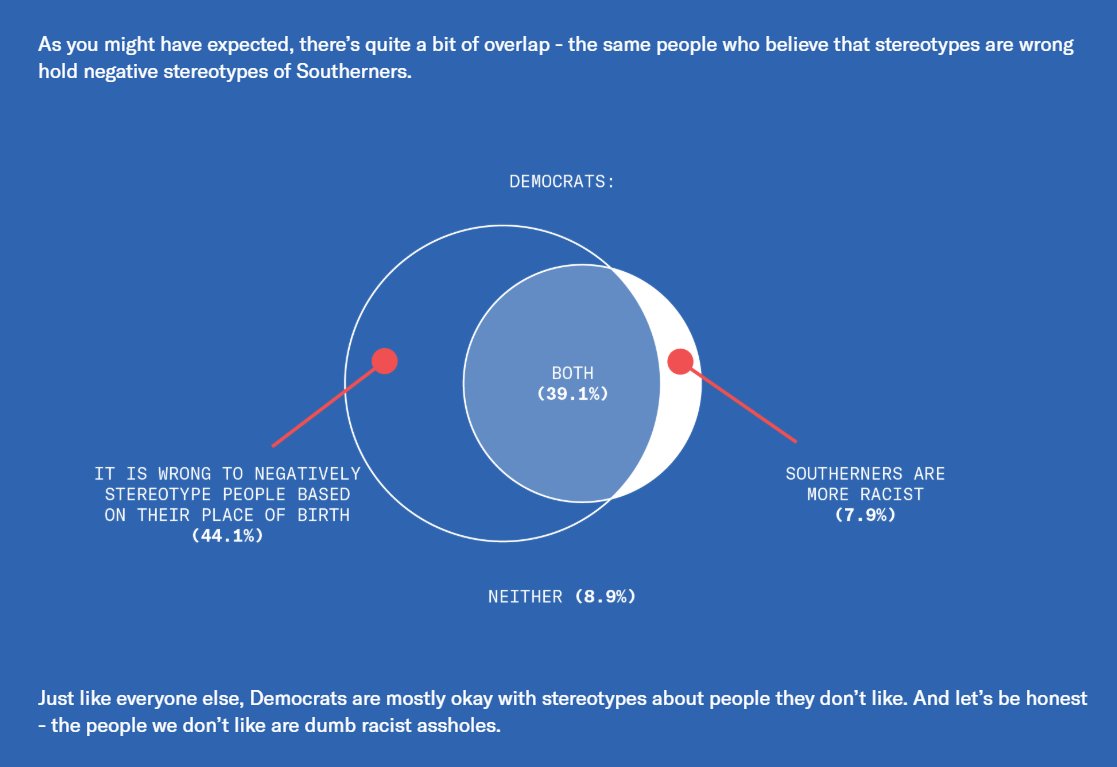
65.2% of Republicans think that people shouldn't be so easily offended... AND that Black Lives Matter is offensive. https://t.co/znmVhqIaL8
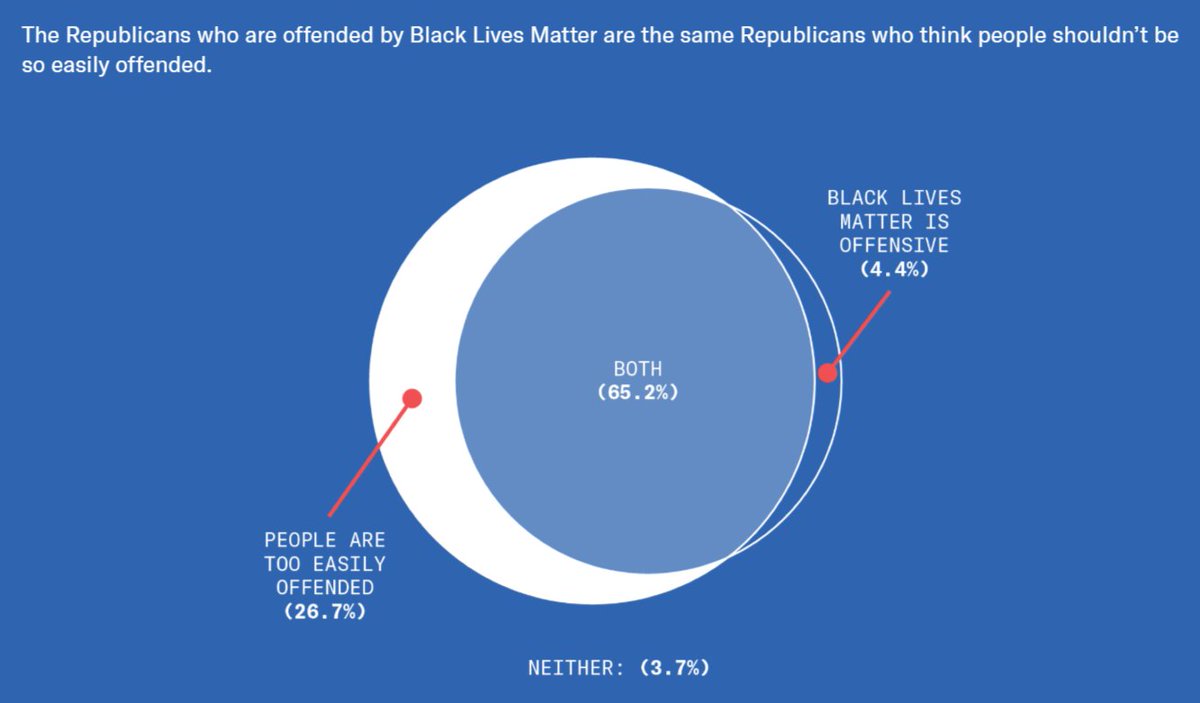
64.6% of Democrats think that a woman has the right to do what she wants with her body... AND that selling organs should be illegal.
48.5% of Democrats think that a woman has the right to do what she wants with her body... AND that prostitution should be illegal.
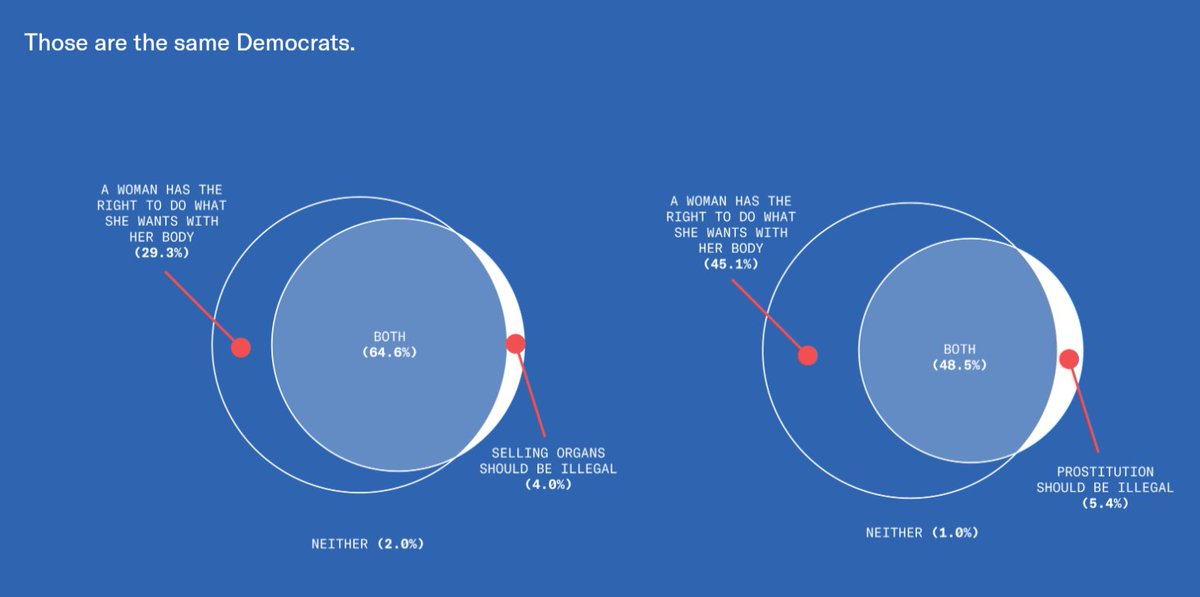
57.9% of Republicans think that people should be free to express their opinions in the workplace... AND that athletes should not be allowed to sit or kneel during the national anthem. https://t.co/ds2ig1NJFr
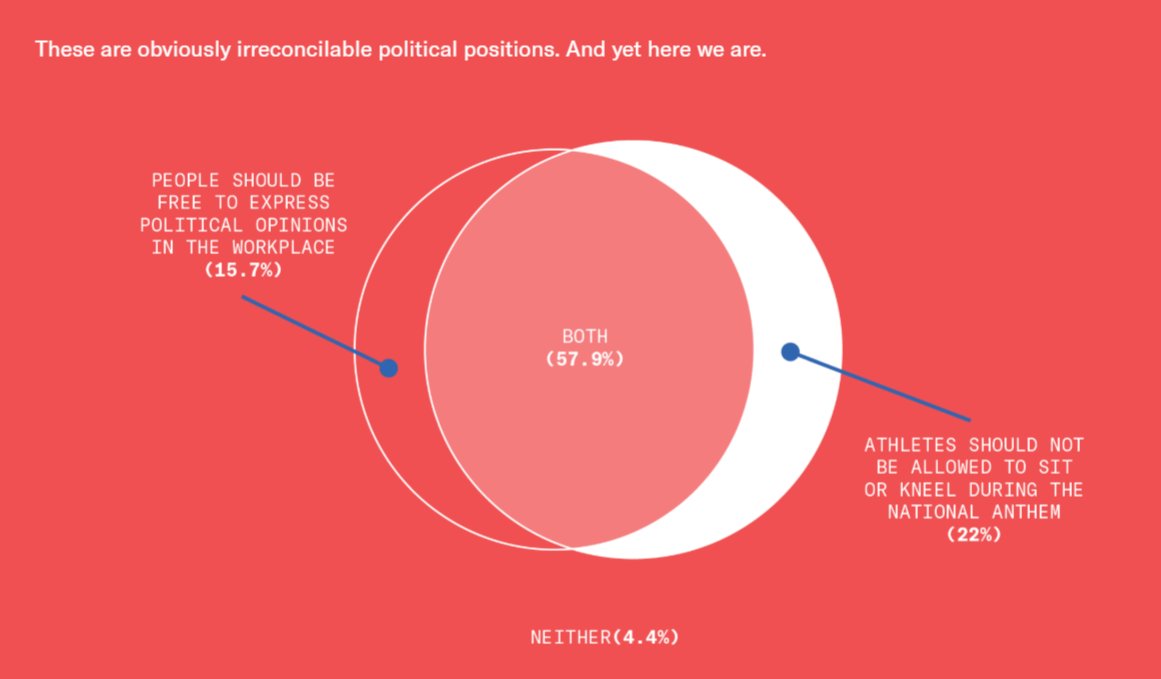
Democrats: Men and women are equal in their talents and abilities. Also, women are superior. https://t.co/bEFSmqQguo
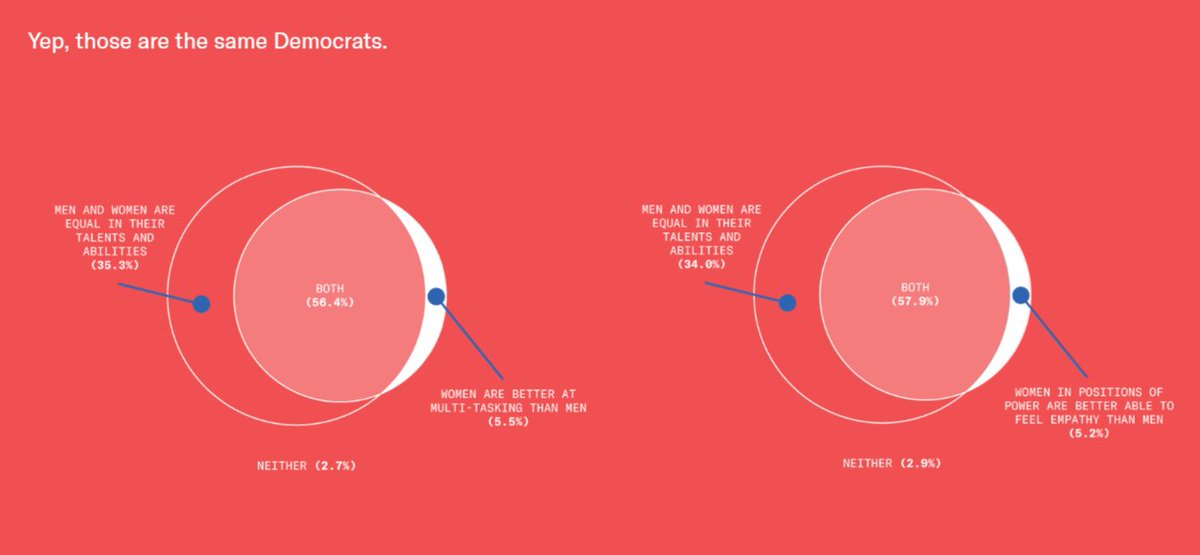
You May Also Like
As someone\u2019s who\u2019s read the book, this review strikes me as tremendously unfair. It mostly faults Adler for not writing the book the reviewer wishes he had! https://t.co/pqpt5Ziivj
— Teresa M. Bejan (@tmbejan) January 12, 2021
The meat of the criticism is that the history Adler gives is insufficiently critical. Adler describes a few figures who had a great influence on how the modern US university was formed. It's certainly critical: it focuses on the social Darwinism of these figures. 2/x
Other insinuations and suggestions in the review seem wildly off the mark, distorted, or inappropriate-- for example, that the book is clickbaity (it is scholarly) or conservative (hardly) or connected to the events at the Capitol (give me a break). 3/x
The core question: in what sense is classics inherently racist? Classics is old. On Adler's account, it begins in ancient Rome and is revived in the Renaissance. Slavery (Christiansen's primary concern) is also very old. Let's say classics is an education for slaveowners. 4/x
It's worth remembering that literacy itself is elite throughout most of this history. Literacy is, then, also the education of slaveowners. We can honor oral and musical traditions without denying that literacy is, generally, good. 5/x

